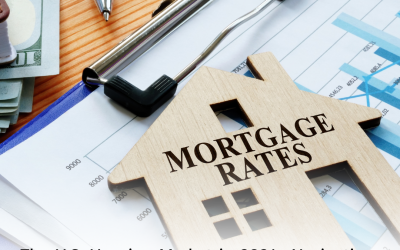Introduction
As we navigate through 2024, the real estate market is undergoing a significant transformation fueled by technological advancements. One of the most notable trends is the rise of smart homes, which integrate technology to enhance convenience, security, and energy efficiency. This article explores how smart home technology is reshaping the real estate landscape, the benefits it offers to homeowners, and the implications for buyers and investors.
Part 1: What Defines a Smart Home?
A smart home uses internet-connected devices and systems to manage and automate household functions, ranging from security to energy consumption. These systems can be controlled remotely via smartphones, tablets, or voice-activated assistants.
Key Features of Smart Homes:
- Smart Security Systems: Cameras, alarms, and doorbells that can be monitored from anywhere.
- Energy Management: Smart thermostats and lighting that adjust based on user habits to save energy.
- Home Automation: Devices that allow homeowners to control appliances, heating, and cooling remotely.
Part 2: The Benefits of Smart Home Technology
Smart home technology offers numerous advantages for homeowners, making properties more appealing to potential buyers and increasing their market value.
Major Benefits:
- Enhanced Security: Real-time monitoring and alerts help homeowners feel more secure and reduce the risk of break-ins.
- Energy Efficiency: Smart systems optimize energy use, leading to lower utility bills and a reduced carbon footprint.
- Convenience and Comfort: Automation provides seamless control over home functions, enhancing the overall living experience.

Part 3: The Impact on Real Estate Market Trends
As smart home technology becomes more prevalent, it is influencing various aspects of the real estate market, from property values to buyer preferences.
Changing Buyer Preferences:
- Demand for Smart Features: Buyers are increasingly prioritizing homes with integrated smart technology, influencing developers and sellers to invest in these features.
- Market Value: Properties equipped with smart technology are often perceived as more valuable, potentially leading to higher resale prices.
- Attracting Younger Buyers: Millennials and Gen Z, who are more tech-savvy, are driving the demand for smart homes, making them a key demographic in the real estate market.
Part 4: Challenges and Considerations in the Smart Home Market
While smart homes present exciting opportunities, they also come with challenges and considerations for buyers, sellers, and investors.
Key Challenges:
- Cost of Installation: Upfront costs for smart technology can be high, which may deter some buyers.
- Compatibility Issues: Not all smart devices are compatible, leading to potential frustrations for homeowners.
- Privacy Concerns: Increased connectivity raises concerns about data security and privacy, making consumers wary of fully embracing smart technology.
Part 5: The Future of Smart Homes in Real Estate
As technology continues to evolve, the future of smart homes looks promising. Innovations in artificial intelligence, machine learning, and Internet of Things (IoT) will further enhance the capabilities of smart home systems.
Future Trends to Watch:
- Increased Integration: Expect more seamless integration between smart devices and home management systems, enhancing user experience.
- Sustainability Features: Smart homes will increasingly incorporate eco-friendly technologies, attracting environmentally-conscious buyers.
- Regulatory Developments: As the market matures, regulations governing smart technology and data privacy may emerge, shaping the future landscape.


Related Articles

Get Extreme Fitness Results: Transform Your Body Today
I've always been passionate about fitness, aiming for extreme results. Through hard work, I've learned how to reach my full fitness capacity. Now, I can show you how to achieve a body that surpasses your dreams. In this guide, I'll share my top strategies for fitness...
Dubai 2040 Urban Master Plan: Shaping the Future of Real Estate and Living Standards
Dubai, known for its visionary projects, is once again leading the way with the 2040 Urban Master Plan. This initiative aims to enhance Dubai’s global position as a hub for business, tourism, and sustainable living. With a focus on expanding green spaces, optimizing...
The U.S. Housing Market in 2024: Navigating Rising Mortgage Rates and Evolving Trends
Introduction The U.S. housing market in 2024 is undergoing significant changes, driven by rising mortgage rates, shifting buyer preferences, and innovative solutions in real estate technology. For buyers, sellers, and investors, navigating these changes requires...




